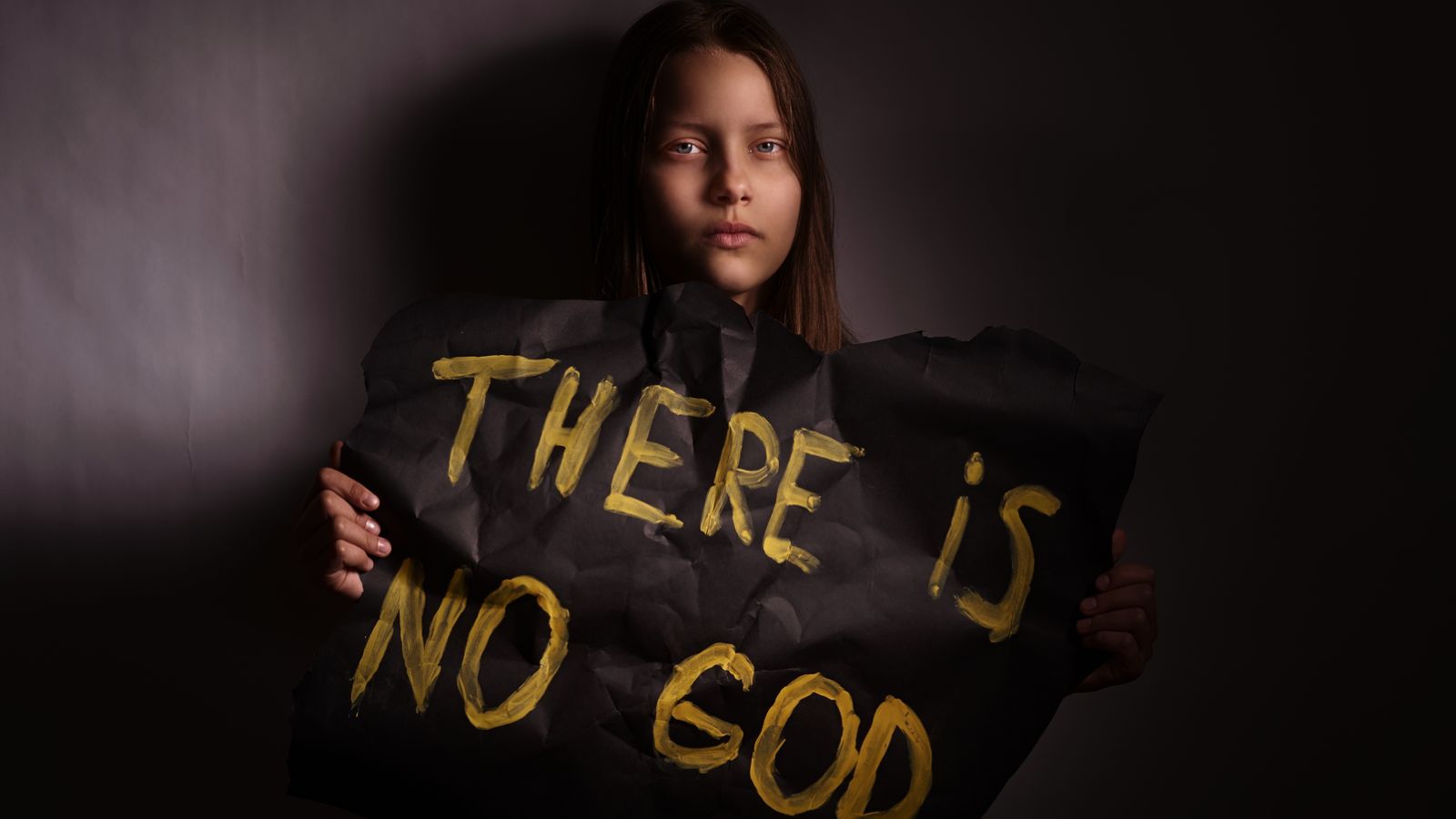Can atheists and Christians get along? We think so, but only if they put their differences aside. This includes letting go of the preconceived notions they have about each other. In this article, we look at 18 beliefs Christians may hold about atheism that aren’t necessarily true.
Atheism Equals Nihilism

According to Politic Sphere, atheism opposes the existence of deities in any form, while nihilism says that life is meaningless. Nihilism touches on many aspects of life, such as morals and authority, while atheism is usually inclined toward the existence of a god. One could lead to the other, but they do not mean the same thing.
Atheists Reject All Spiritual Experiences

It’s not that atheists don’t believe in spirituality, but they approach spiritual experiences differently. Many of them value personal transformation and profound experiences without attributing them to supernatural causes, embracing practices like meditation, mindfulness, and a deep connection to nature.
Atheists Are Angry at God

Disbelief in God is not based on emotions but on a lack of evidence of His existence. It is true that atheists critique religious institutions or ideologies, but it is rarely based on personal feelings. It is usually about societal impact. To many atheists, the concept of being angry at something one doesn’t believe exists is illogical, as it is why they don’t partake in religion in the first place.
Atheists Are Certain There Is No God

Many atheists identify as agnostic atheists, highlighting the complexity of the existence of deities. Britannica defines agnosticism as the doctrine that humans cannot know of the existence of anything beyond the phenomena of their experience. This means that some atheists acknowledge the impossibility of proving the non-existence of gods while also noting the lack of evidence for them.
Atheists Disdain Religious People

Most atheists distinguish between criticizing religious ideas and respecting individuals who hold those beliefs. In fact, religious people tend to fight more amongst each other, according to history. For example, the Thirty Years’ War, as reported by World History, was a period of suffering triggered by differences in religious beliefs.
Atheists Have No Purpose in Life

Purpose for atheists can come from personal passions, relationships, and the desire to contribute positively to society. Others find meaning through exploration, learning, and human connections. Just because they don’t believe in God doesn’t mean they can’t live a meaningful life.
Atheists Lack Morality

Atheists, much like their religious counterparts, navigate the complexities of right and wrong through a lens of empathy and reason, not command. You don’t need to believe in a god to be kind. Many wealthy atheists are involved in humanitarian and ethical causes without religious motivation.
Atheists Lack a Sense of Community

Atheists are not lonely. Secular gatherings and online forums provide a rich network of community support and connections for atheists. Additionally, many atheist groups and organizations foster community through social events, discussions, and support networks.
Atheists Don’t Appreciate the Beauty of Religious Traditions

The pizzazz of religious art and tradition can be admired as a testament to human creativity and history, regardless of belief. Atheists can appreciate the cultural, historical, and artistic aspects of religious traditions without subscribing to belief systems. Some religious ceremonies, such as weddings, celebrate much more than God, and atheists see that.
Atheists Are Always Rational and Dismiss Emotions

Embracing rationality does not mean ignoring the richness and complexity of human emotions. Yes, rational thinking is valued, but just like anybody else, emotions and empathy play a crucial role in the lives of many atheists. The difference is that atheists don’t let their emotions drive their decision-making.
Atheism Is a Belief System

Atheism is often misunderstood as a belief system, but it’s actually the absence of belief in gods. It’s not about following a set of doctrines but rather about making sense of the world through reason, empathy, and secular philosophies.
Atheists Cannot Experience True Love or Compassion

It’s a misconception that atheists can’t experience true love or compassion. These emotions are natural and universal, not limited to those with religious beliefs. Atheists are just as able to form deep, meaningful relationships and are motivated by empathy to perform acts of kindness rather than God’s will.
Atheists Are Immune to Religious Influence

Some think atheists are entirely unaffected by religion, which isn’t true. Atheists often have a keen awareness of how religious ideologies impact culture, laws, and personal lives. Through understanding and critiquing religious texts and teachings, they engage deeply with the topic, and should be allowed to contribute to discussions on religion’s societal impact.
Atheists Lack Tradition and Ritual

Contrary to the belief that atheists lack tradition and ritual, many create their own meaningful practices to mark life’s milestones and celebrate the changing seasons. These secular rituals, focused on human experiences like birth, love, and loss, offer comfort and foster connections.
Atheists Deny the Possibility of Anything Beyond Human Understanding

Embracing the unknown is essential from an atheist perspective. It’s therefore not accurate to say atheists deny the possibility of anything beyond human understanding. Rather, they are often deeply curious about the universe and its mysteries. This openness drives a continual quest for knowledge, embracing science and philosophy to explore the unknown.
Atheists Are a Homogeneous Group

Big Think categorizes atheists into the nonreligious, the nonbelievers, and the agnostic. This list is not meant to be exhaustive, but it captures the three most common beliefs. It also shows that there’s a wide range of political views, philosophical beliefs, and personal values in atheism.
Atheists Disregard the Importance of Religion in History

Atheists often see how important religion has been in making history, including its effects on our lives today. This doesn’t mean they agree with everything about religion. Instead, they think deeply about it and recognize how it has helped shape the world.
Atheists Do Not Face Discrimination or Prejudice

Contrary to some beliefs, atheists do face discrimination and prejudice, especially in regions where religious belief is deeply ingrained in society. Misconceptions linking atheism with immorality or a lack of patriotism can lead to significant social and political hurdles for those who choose to think differently from the majority.
Read More: 17 Fairy Tales That Are Now Considered Racist

While fairy tales weave magical narratives that span generations, many emerge from historical and cultural contexts tinged with biases. Hiding in many of these tales, racial undertones can be found. Let’s look at 17 fairy tales that have deeper implications.
17 Fairy Tales That Are Now Considered Racist
18 Misunderstood Acts The Bible Says Aren’t Actually Sins

People tend to assume that the Bible condemns a wide array of behaviors, but the reality might surprise you. Here, we zoom in on 18 so-called “sins” that may not be as bad as we thought.
18 Misunderstood Acts The Bible Says Aren’t Actually Sins
The Boomers Called It: 19 Stupid Trends That Backfired

Sometimes, we get carried away with trends that we think are cool at the time, only to realize later how utterly ridiculous they were. Join us as we take a cringe-worthy trip down memory lane and explore 19 stupid trends that backfired. Prepare for some facepalms!
The Boomers Called It: 19 Stupid Trends That Backfired
21 Things That Will Be Lost Forever When The Boomer Generation is Gone

Baby boomers grew up in a vastly different culture, so they have what younger generations consider strange habits. An internet survey recently asked, “What will die with boomers?” Here are the top 22 answers.
21 Things That Will Be Lost Forever When The Boomer Generation is Gone
18 Things You’re Far Too Old To Be Doing Anymore

As we grow older, it’s a great time to reevaluate our choices and habits. In this article, we’ll explore 18 things you may still be doing even though you may be too old.

